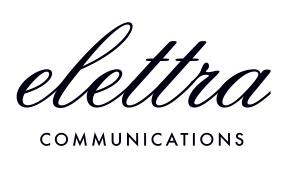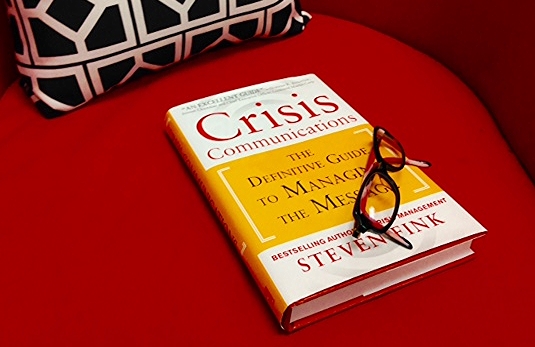Next up in our book club is Steven Fink’s Crisis Communications: The Definitive Guide to Managing The Message - a follow up to Crisis Management: Planning for the Inevitable.
Fink is well positioned to be an authority on the subject of crisis management and crisis communications having dealt with more than his fair share of difficult situations on behalf of clients. He has provided counsel for some of the world's most prestigious companies in crisis management and crisis communications, strategic public relations, corporate communications, and high level, confidential issues relating to economic espionage.
Whereas Crisis Management deals primarily with the reality of the unfolding crisis and how to manage it, Crisis Communications focuses on the perception of the event and, most especially, the perception of how it is being managed.
The book doesn’t make any groundbreaking revelations on the dos and don’ts of developing a crisis communications strategy, however, what makes it an entertaining and enjoyable read are the real life examples of well known companies who have hit the mark in their crisis communications…or missed it completely.
The book contains detailed analysis of recent high profile catastrophes such as the BP oil spill in the Gulf of Mexico, the crisis at Pennsylvania State University in 2011, and the unintended acceleration glitch that rocked Toyota in 2010. Fink uses these examples to reinforce the importance of being prepared and having a carefully thought out crisis communications strategy in place. These case studies also highlight many examples of what not to do should your company find itself at the centre of media circus.
Here are a couple of key takeaways from the book….and if you’d like to know more about crisis communications for your organization then please give us a shout!
Perception always trumps reality
Throughout the book Fink comes back to this one single point. It doesn’t matter if your company has not done anything wrong, if it is perceived otherwise in the court of public opinion, then that perception is what people will remember. And that perception may ultimately affect your business and the value of your brand.
If a crisis is being managed well, the goal of effective crisis management is to form the public’s perception to match the reality. In the end, crisis communications, or the lack thereof, is all the public remembers.
“Remember: even if you know you’re right, if the perception is that you’re wrong, you ARE wrong. Or, at least, you’re wrong in the eyes and minds of those who matter.”
Reservoirs of good will
Things are chaotic enough during a crisis that you need every advantage you can muster. It is therefore a good idea to take stock of how your company is perceived on a normal day. Are you considered trustworthy? Are you communicative with your publics? If there is something you need to address then do it now.
It is important that your publics think good things about you before crisis hits. This is what Fink calls “reservoirs of goodwill”.
“Part of your proactive crisis management and crisis communications strategies should be to measure the depth of your goodwill reservoir and see what you can do to increase it. The more goodwill you have in the bank or reservoir, the more your public will tend to trust you and believe you when your crisis hits, and the more you can draw on it to tide you over.”

